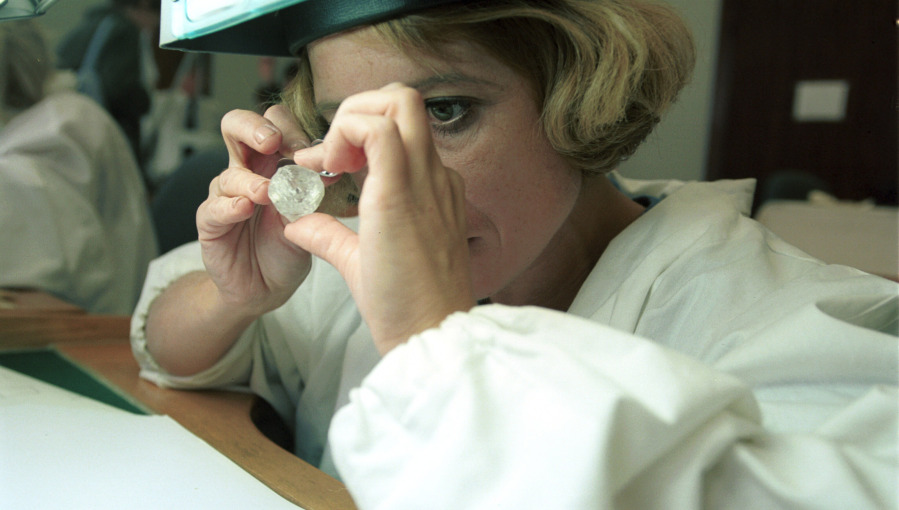
In the first five months of the year, imports of Russian diamonds to Hong Kong increased 18-fold year on year, according to data from Hong Kong’s Statistics Bureau published on its official website on June 30.
Hong Kong has dramatically stepped its imports of diamonds from Russia, purchasing $657.3mn worth of Russian diamonds in the first five months of 2024.
In the period from January to May 2024, Hong Kong’s imports of Russian diamonds soared from $36.5mn a year earlier to $657.3mn. As a result, Russia has become the third-largest supplier of diamonds to Hong Kong, with its share of total diamond imports rising to 12% from just 1% in 2023.
India remains the leading supplier of diamonds to Hong Kong, with imports valued at $2.9bn, followed by Israel with $716.6mn. Notably, both India and Israel, unlike Russia, do not mine diamonds themselves.
The substantial increase in Hong Kong’s diamond imports from Russia highlights a significant shift in the global diamond market. Dubai has also become a major market for the trade in Russian diamonds.
As bne IntelliNews reported, the EU included sanctions on Russian diamond exports as part of the twelfth sanctions package, but due to intensive lobbying by Belgium, where Antwerp is the leading European diamond market and the number-one destination for rough diamonds from Russian miner Alrosa, the sanctions were watered down and will be phased in gradually.
Russian diamond sanctions watered down again
Afraid of losing the diamond business completely to the growing rival markets in Asia and the Middle East, the EU has watered down the restrictions on trading Russian diamonds again last week.
The EU has extended the “sunrise period” for sanctions on Russian diamonds by six months and included an important concession for goods that predate the new rules, according to a statement released by the EU on June 24.
The EU also said the update “fine-tunes” the import ban on Russian diamonds included in the twelfth package and is included as part of the fourteenth sanctions package. Earlier in June, De Beers called for a one-year extension to the sunrise period for the G7 sanctions on Russian diamonds, but it is up to the individual countries to rule on the implementation of the ban.
The mandatory traceability programme for imports of rough and polished natural diamonds will now take effect on March 1, 2025 instead of September 1, 2024. This extension is intended “to allow more time to set up the G7 traceability scheme,” the EU explained reports Rapport.
This decision comes in response to calls from diamond trading powerhouse De Beers and other industry leaders to extend the interim period during which importers can use alternative documentation to prove that diamonds are not of Russian origin. Once this period ends, importers into the EU must use a traceability-based certification scheme to verify imports of diamonds over 0.50 carats.
Additionally, the EU has introduced a “grandfathering” clause to exempt diamonds that were already located in the EU or a third country other than Russia – or were manufactured in a third country – before the new rules were implemented. The EU ban on direct imports of diamonds from Russia began on January 1, 2024, while the ban on goods processed outside Russia started on March 1, 2024.
The EU said that these pre-existing diamonds no longer provide revenue to Russia.
“We are extremely pleased that, after months of intense negotiations, we have succeeded in pushing the needle to allow regularisation of so-called ‘grandfathered stock,’” said the Antwerp World Diamond Centre (AWDC). “Sanctioning these goods and prohibiting their trade would impose an unfair and severe financial burden on diamond companies without significantly impacting Russia’s revenues.”
The extension and concession aim to balance the need for stringent sanctions with the “practical realities of the diamond industry,” providing additional time and clarity for businesses to adapt to the new regulations.
Moreover, temporary imports or exports of jewellery, for example for trade fairs or repairs, will not fall under the ban. In addition, the EU has delayed the prohibition on jewellery incorporating Russian diamonds processed in third countries until the European Council, the EU’s executive arm, “decides to activate” it, the EU statement said.
The US currently has the strictest limits on Russian trade, requiring self-certification for diamonds of 1 carat or lower, falling to 0.50 carats on September 1. Larger diamonds are not covered by the sanctions.
Source: Intellinews.com